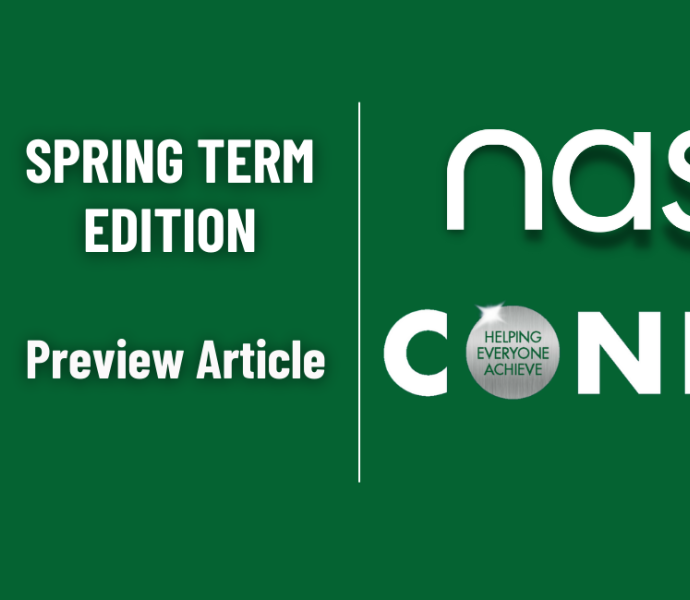Search results
Refine your search
Found results



- Twilight Talks
This session will be delivered by representatives from the Thomas Pocklington Trust

- Assistive Technology
This term’s nasen Connect shines a spotlight on a powerful student-led campaign transforming accessibility in further education. Access and Assistance for All, run by Thomas Pocklington Trust in partnership with University College London.

Oral language is the heart of literacy and learning. Language delays are common, yet the importance of oral language is often overlooked. We take a dive into this in our ‘nasen Connect’ summer edition.

This term’s nasen Connect explores the transformative impact of supported internships in creating meaningful employment opportunities for young people with special educational needs and disabilities (SEND).

- WSS past event,
- Universal SEND Services
- Webinar,
This webinar builds on our initial exploration of this theme in Positively responding to increasing complexity in our mainstream schools – collaborative learning opportunities to inform strategic and systemic thinking.

- nasen Connect
- nasen Connect 2025
This inspiring edition focuses on unlocking potential and increasing employment opportunities for learners with SEND. Discover the benefits of supported internships, updates to the Gatsby Benchmarks and more.

- Twilight Talks
In this talk Tina Coope from the charity PANS PANDAS UK will discuss: What are PANS and PANDAS? How do the conditions impact on children and young people in the classroom? How can schools begin to provide support?

- Twilight Talks
In this talk, Natalie Packer and David Bartram will share ideas for effective leadership of SEND across a Trust or group of schools.

- Twilight Talks
This talk will cover the recent research conducted into the needs of SEN Casework teams and the support required to address some of the issues, such as recruitment and retention and the need for targeted training.


- webinar
- governors
- inclusive schools
- SENCOs
This session explores parent partnerships, and how to engage successfully with parents, alongside looking at person centred working and how to include parent/ carer voice in education. The session is for primary and secondary phases.
This resource is FREE with SEND CPD on Demand

- WSS past event,
- PfA
This event is a response to feedback from the education workforce following the Preparing for Adulthood (PfA) Review Guide Regional Training delivered in 2023 and will be a celebration of everything schools and colleges are already doing.
![twilight talks promo image [grey background with white text that reads twilight talks Research Series' alongside a cartoon owl on a branch]](https://asset.nasen.org.uk/styles/690_600/public/media/2023-08/Twilight%20Talks%20Research%20Series%20Banners%20-%20grey.png?h=59f14d13&itok=JO7m67o3)
- Twilight Talks
- Research Series
- Dyslexia
In this talk, Joanna Kolak (Institute of Education, UCL’s faculty for Education and Society) reviews studies on the educational potential of language in children’s apps.

- Webinar,
- mainstream
- specialist settings
- inclusive provision
- SENCOs
This topic was suggested by and voted for SEND CPD on Demand Subscription holders as part of our 'Your Choice' offering.
This resource is FREE with SEND CPD on Demand

- nasen Connect
- nasen Connect 2025
In this edition, we explore why a focus on spoken language is essential to literacy and learning, how schools can address maths anxiety early, and what to do when the language within EHC Plans don’t deliver.

- WSS Review Guide
This Tool can be used by Senior Leadership Teams to consider inclusion within their setting, and explores how inclusion is communicated through policies, enacted in practice and experienced by stakeholders.


- WSS Review Guide
- PfA review guide
- PfAEY
